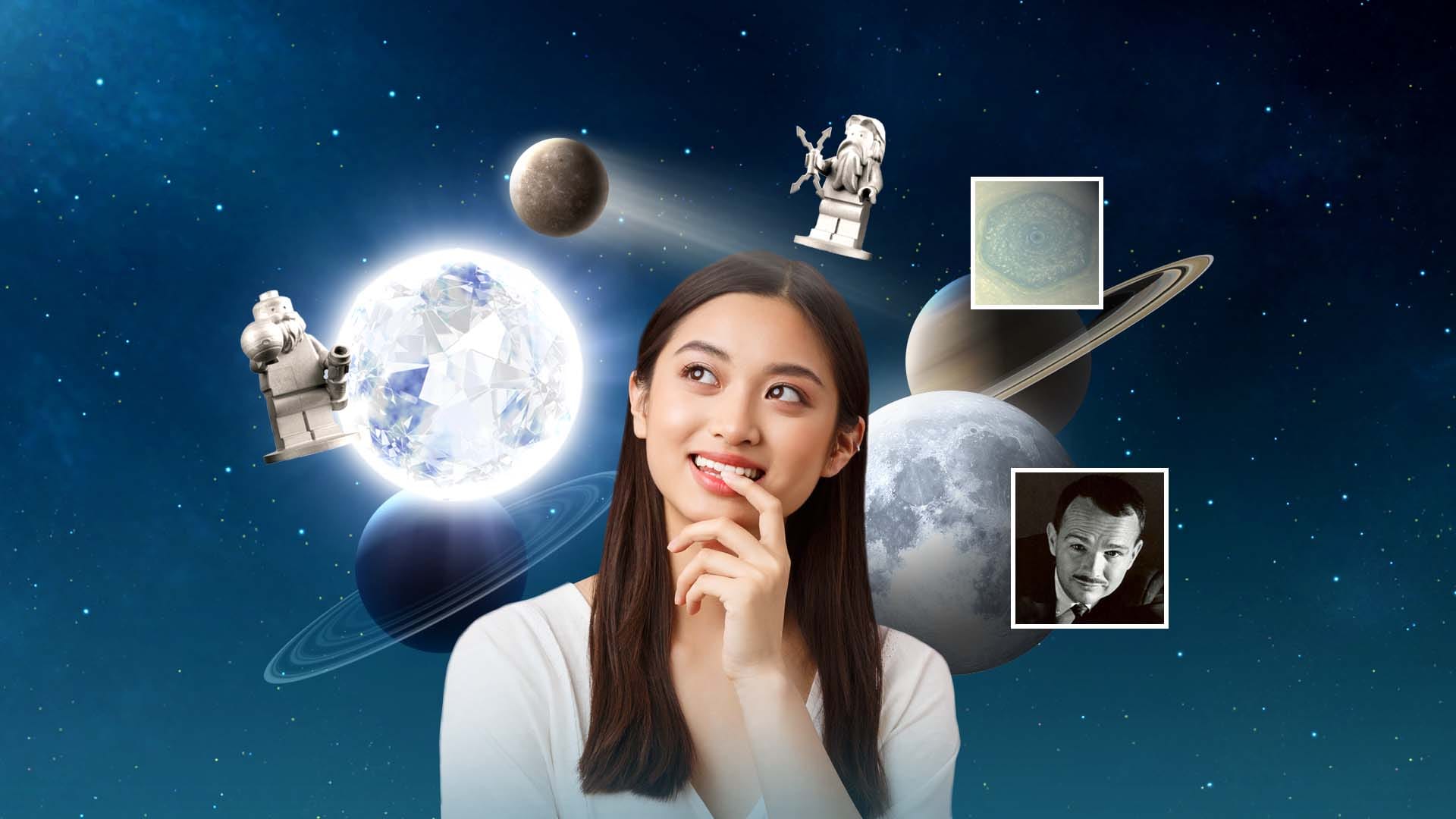This content provides 10 fascinating space facts that offer insight into the wonders of our universe. Some of the highlights include the Moon slowly moving away from Earth, Jupiter having the most moons in our solar system, the Sun making up the majority of the solar system’s mass, and a planet where it rains glass sideways. It also covers black holes emitting a faint glow, Neptune being the windiest planet, Moon footprints that can last for millions of years, the collision of the Milky Way and Andromeda galaxies, space smelling like seared steak, and the eventual demise of the Hubble Space Telescope. These facts remind us of the vast mysteries and potential discoveries that lie beyond Earth.
1. The Moon Has Slowly Been Moving Away from Earth
Did you know that the Moon is gradually drifting away from our planet? Due to tidal forces, the Moon moves approximately 1.5 inches (3.8 centimeters) farther away from Earth each year. This phenomenon has been occurring ever since the Moon was formed around 4.5 billion years ago. Over time, the increasing distance will result in longer days here on Earth.
2. Jupiter Has the Most Moons in Our Solar System
Jupiter, the largest planet in our solar system, is home to a remarkable 79 known moons. The four largest ones—Io, Europa, Ganymede, and Callisto—are known as the Galilean moons and were discovered by Galileo Galilei in 1610. These moons have diverse features, including active volcanoes, ice-covered oceans, and gigantic impact basins.
3. The Sun Makes Up 99.86% of the Mass in Our Solar System
Our Sun is an absolute behemoth, accounting for nearly all the mass in our solar system. Comprising approximately 99.86% of the total mass, the Sun’s immense gravitational pull keeps all the planets, moons, asteroids, and comets in orbit around it. Its diameter is about 109 times that of Earth, and it could fit over a million Earths inside its volume.
4. There Is a Planet Where It Rains Glass Sideways
Ever wondered what the weather is like on other planets? On the exoplanet HD 189733 b, located about 63 light-years away, it rains glass—sideways! Scientists believe that the planet’s atmosphere contains tiny silicate particles, which are whipped around by ferocious 4,500 mph (7,250 km/h) winds. The combination of extreme heat and intense winds creates an unusual weather phenomenon.
5. Black Holes Are Not as Dark as They Seem
Black holes are known for their intense gravitational pull that not even light can escape. However, recent scientific discoveries suggest that they might not be entirely black. According to the laws of quantum mechanics, black holes emit a faint glow called Hawking radiation. This radiation is incredibly weak and difficult to detect, but it challenges our previous understanding of these enigmatic cosmic entities.
6. Neptune Is the Windiest Planet in the Solar System
Neptune, the eighth and farthest known planet in our solar system, experiences incredibly strong winds. With wind speeds reaching up to 1,300 mph (2,100 km/h), it holds the title for the windiest planet. These fierce winds are due to Neptune’s peculiar atmosphere, which consists mainly of hydrogen, helium, and trace amounts of methane. Scientists continue to study the planet to better understand its atmospheric dynamics.
7. Footprints on the Moon Can Last for Millions of Years
During the Apollo missions, astronauts left their footprints on the Moon’s surface. These footprints, made on the Moon’s fine dust and known as regolith, can surprisingly last for millions of years. The Moon has no atmosphere or weather conditions like those on Earth, which means there’s no wind or rain to erode or wash away the footprints. So, the remarkable imprints left by our spacefaring pioneers remain untouched.
8. The Andromeda Galaxy Is Heading Towards Us
You might think that galaxies are static, but they are in constant motion. Our Milky Way galaxy and the Andromeda galaxy are on a collision course. Over the next few billion years, these two spiral galaxies will merge to form a new, larger galaxy. However, fear not—given the vast distances between the stars, it is highly unlikely that any collisions between individual stars will occur.
9. Space Smells Like Seared Steak
While it might sound surprising, astronauts have reported that space has a distinct smell. After spacewalks, when they return to the safety of the spacecraft, astronauts have described the aroma resembling that of seared steak. This peculiar smell is believed to emanate from the residual atomic particles floating in space, which interact with the astronauts’ spacesuits upon reentering the pressurized environment.
10. The Hubble Space Telescope Isn’t in Space Forever
One of the most iconic space observatories, the Hubble Space Telescope, won’t remain in orbit indefinitely. Although it has been capturing breathtaking images of distant galaxies and celestial phenomena since 1990, the Hubble’s orbit is slowly decaying. Eventually, the telescope will reenter Earth’s atmosphere and burn up, ensuring that it does not become space debris.
These fascinating space facts offer a glimpse into the vast wonders of our universe. As we continue exploring and studying the cosmos, there is no doubt that even more mind-boggling discoveries and revelations await us.
